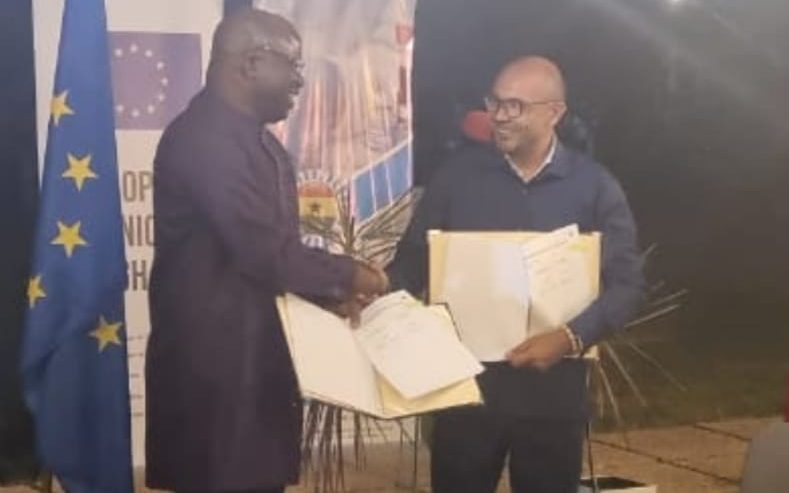By Samira Larbie,
Accra, April 4 GNA – The European Union (EU) has signed a €5 million grant agreement with DEK Vaccines Limited to support Ghana’s vaccine manufacturing project.
The grant, made available by the European Investment Bank, will among others serve as a seed-fund for the development of the vaccine manufacturing unit at DEK Vaccines Limited.
It would also cover project-related expenditures, initial engineering, and civil works, equipment down-payments and additional feasibility studies, project development, and technical assistance.
DEK Vaccines Limited is a consortium of three Ghanaian pharmaceutical companies- Danadams, Ernest Chemists and Kinapharma- selected to produce vaccines for Ghana, the ECOWAS region and Africa to shore up the continent’s capability to produce vaccines locally.
At a short ceremony in Accra on Monday, Mr Irchad Razaaly, the EU Ambassador to Ghana, said the EU was committed to supporting Ghana to become the vaccine manufacturing hub of Africa.
He said the grant agreement paved the way for ensuring that essential vaccines against diseases like malaria, COVID-19, human papillomavirus, pneumonia, rotavirus, and cholera could be manufactured locally as well and become accessible to every child born in Ghana and beyond.
The Ambassador noted that it was unsustainable for Africa to import over 90 per cent of its vaccines from elsewhere, saying the agreement would make Ghana and a handful of other countries key provider of vaccines for the rest of the continent.
“Africa is importing 90 per cent plus of its vaccine. It is consuming 95 per cent plus of vaccines produced elsewhere, and we agree this is not sustainable,” he said.
Mr Razaaly was optimistic that the EU’s strategic interventions would enable Ghana to implement its vaccine manufacturing roadmap.
“To date, the EU together with the Herman Development Cooperation is supporting the Food and Drugs Authority in upgrading its already high capacity for regulating vaccines.
“Our presence here today is directly related to the first chapter of the roadmap to establishing local production facilities for vaccines,” Mr Razaaly stated.
The Ambassador said the EU would also support other areas of the roadmap, particularly building human resource capacity for vaccines research, development, and manufacturing.
“The EU is delighted to be a part of this ambitious and pioneering voyage, along Ghana’s vaccine manufacturing roadmap and wishes the team at DEK Vaccines Limited a success,” he added.
Dr Kofi Nsiah-Poku, the Managing Director of DEK Vaccines Limited was grateful to the EU for the historic support for the project.

He said $122 million was needed to execute the project and receiving the grant was a milestone as the money was free of interest.
The idea to manufacture vaccines locally was birthed during the COVID-19 pandemic when some African countries struggled to secure vaccines.
GNA